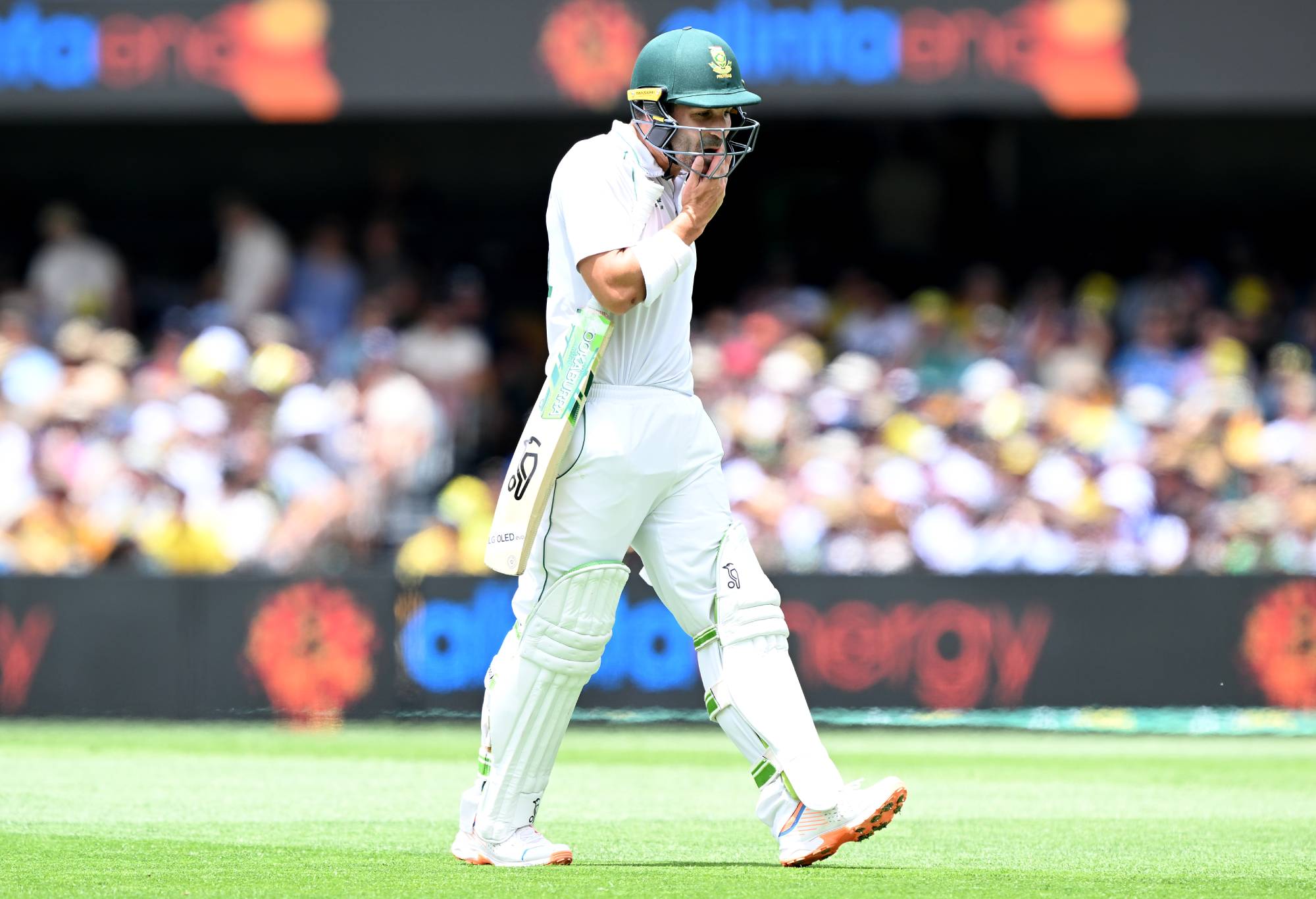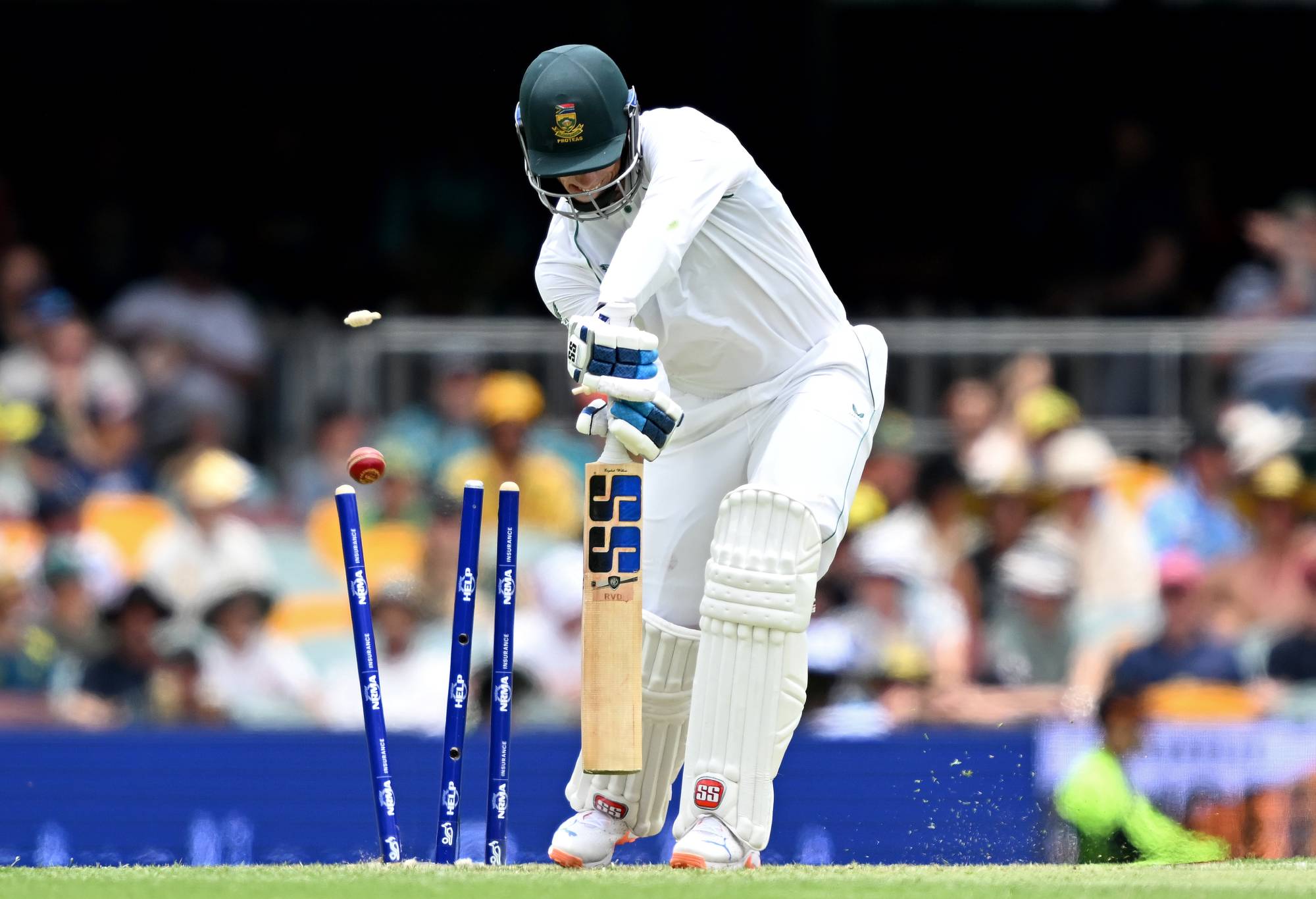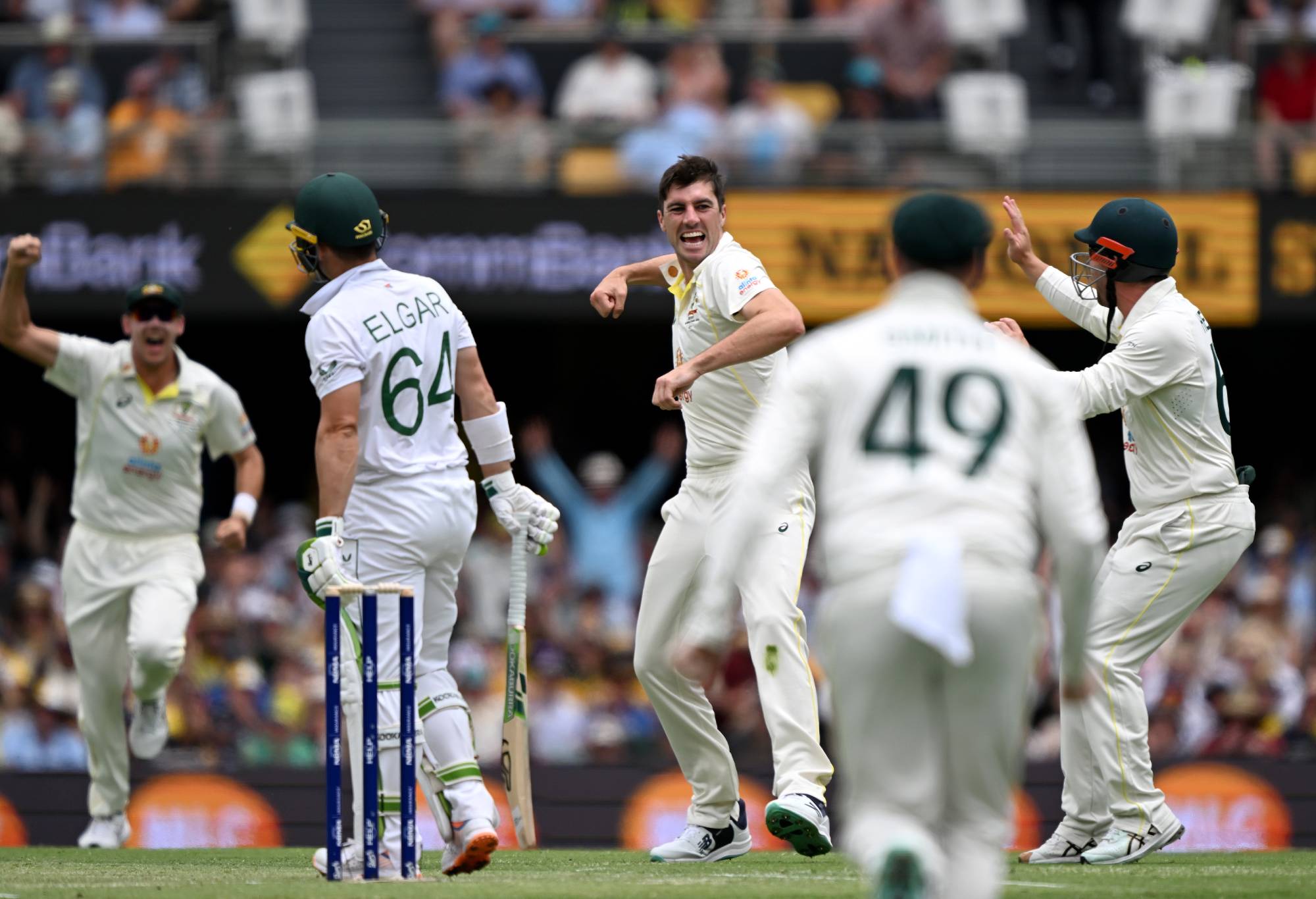South Africa are facing the prospect of leaving Australian shores as the worst-performed team with the bat since England toured 136 years ago.
The Proteas enter the third Test against Australia at the SCG with the second-worst average for runs per dismissal by any side apart from Arthur Shrewsbury’s English touring party of 1886-87 who played in the era of uncovered wickets.
They are putting up a paltry 16.1 runs before a wicket falls after being rolled for a combined 644 runs across four innings in Brisbane and Melbourne.
Only eight other teams who have played two or more fixtures on tour in Australia since the advent of Test cricket in 1877 have averaged less than 20.
CLICK HERE for a seven-day free trial to watch international cricket on KAYO
After managing just 152 and 99 on a Gabba greentop which also caused the local batters plenty of problems in the series opener, the Proteas had no excuses at the MCG last week in tallying 189 and 204 in decent batting conditions.

Dean Elgar. (Photo by Bradley Kanaris/Getty Images)
Australia still had two wickets to spare when they declared at 575 in their only innings.
South Africa’s struggles are not new – their second-inning tally in Melbourne was the first time they had passed 200 in eight attempts.
They have averaged just 92 runs before the fifth wicket has fallen in these two Test losses to Pat Cummins’ side.
The West Indies, in their two Tests prior to the South African series, managed 150.75 runs on average before the Australians were halfway through their line-up and racked up 22.68 runs per dismissal with the bat.
South Africa skipper Dean Elgar on Tuesday told reporters at the SCG that despite their pitiful record, they were unlikely to play a sixth specialist batter alongside keeper Kyle Verreynne and stick with bowling all-rounder Marco Jansen at No.7.
Staring down the barrel of a series clean sweep and their fifth straight loss, Elgar was putting on a brave face amid the gloom enveloping his rabble of a batting unit.

(Photo by Bradley Kanaris/Getty Images)
“Talk is cheap at the moment and we need to go out and perform,” Elgar said. “Actions are where we are at the moment and we need to make amends.
“It’s very frustrating purely knowing that from a squad point of view, those players are really talented and unfortunately it hasn’t gone our way.
“To play seven batters would be a massive ask for our bowling unit. Workload has been quite hectic on our fast bowlers of late, especially in the last Test.
“So to expect them to come into a Test and to have potentially only three seamers is quite a big ask.”
And when it comes to the current South African side’s unwanted place in history, they’d have to undergo two dramatic batting collapses in Sydney to sink lower than the English side of 1886-87, who averaged 13.35 runs per dismissal back before the term “Test match” had even been coined.

(Photo by Bradley Kanaris/Getty Images)
Although that English side actually won its two Tests. The tourists were bowled out for 45 in Sydney with new-ball duo Charlie Turner (6-15) and left-armer JJ Ferris (4-27) rendering Fred “The Demon” Spofforth’s services obsolete.
England then rolled the Aussies for 119, posted 184 to set a target of 111 for victory before Nottinghamshire all-rounder Billy Barnes (6-28) tore through the hosts to bowl them out for 97.
In the second match, also at the SCG, selection politics between the NSW and Victoria colonies reared its ugly head and Wisden described the Australian side as “very far indeed from a representative one, the only Victorian player on the side being (Billy) Midwinter”.
England’s batters were again mediocre in making 154 and 151 but with prolific Surrey seamer George Lohmann taking 8-35, they routed Australia for 84 on the way to a 71-run triumph.
As a sidebar, Lohmann’s figures were the best in Test cricket at that point in time until they were bettered by English teammate Johnny Briggs’ 8-11 against South Africa a couple of years later. Lohmann reclaimed the record with 8-7, then 9-28 against the same opposition in 1896. That remained the best bowling analysis until Jim Laker’s 10-wicket haul against Australia in 1956 and is still the fourth-best of all time.
South Africa are not the only touring side in recent years to struggle with the bat. New Zealand (19.25 in 2019-20 despite a line-up containing Kane Williamson and Ross Taylor) and Sri Lanka (17.02 in the previous summer).
Prior to that, the outclassed Bangladeshi side of 2003 was the only other recent example of a team averaging less than 20 runs per dismissal.
The other four sub-20 beleaguered batting brigades were India (1947-48) on just their third overseas tour, South Africa in 1931-32, the West Indies the previous summer and the first English team to head Down Under in 1876-77.
| Touring team | Season | Runs per dismissal | Series result |
| England | 1886-87 | 13.35 | 2-0 |
| South Africa | 2022-23 | 16.1 | 0-2* |
| Sri Lanka | 2018-19 | 17.02 | 0-2 |
| Bangladesh | 2003 | 18.32 | 0-2 |
| South Africa | 1931-32 | 18.47 | 0-5 |
| England | 1876-77 | 19.08 | 1-1 |
| New Zealand | 2019-20 | 19.25 | 0-3 |
| India | 1947-8 | 19.55 | 0-4-1 |
| West Indies | 1930-31 | 19.8 | 1-4 |
Elgar’s South Africans could get off the list of less than 20 runs per dismissal if they can somehow muster up 556 runs across two completed innings at the SCG.
Not likely but not impossible.
Rassie van der Dussen (who made five runs from a combined 16 deliveries in Brisbane) and Heinrich Klaasen are in line to replace Theunis de Bruyn, who has returned to South Africa to attend the birth of his child.
Left-arm spinner Keshav Maharaj, who has conceded 152 runs without taking a wicket in the two Tests, could be joined in the attack by off-spinner Simon Harmer, who has 34 wickets at 25.23 in eight Tests as part of a lengthy first-class career tally of more than 800 scalps, primarily on the English county circuit.
>Cricket News

%20(3).jpeg)




0 Comments